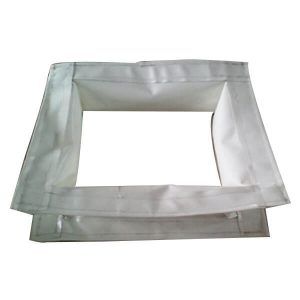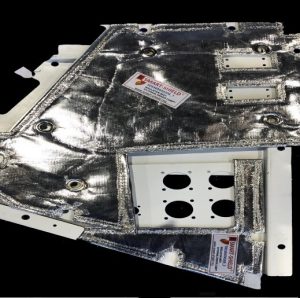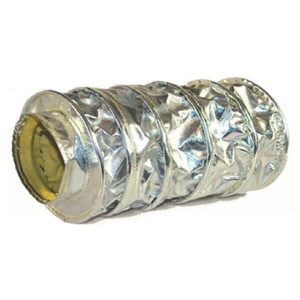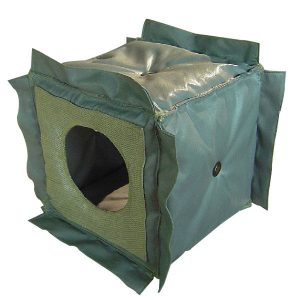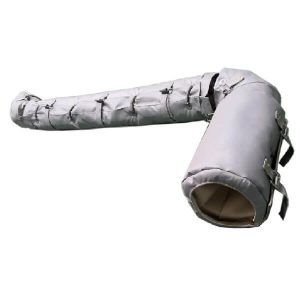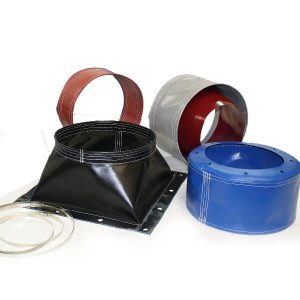Fabric Expansion bellows are used across all industry, mainly for the transport of cold and hot air or gases. Application with flue gas installations; in aeration and de-aeration, piping for air and spent gases from boilers and turbines, dryers, exhausts, ventilators and other equipment.
The advantages are:
- Useable up to very high temperatures (1,200 °C continuous)
- Low spring constant
- Short fitting length with very large movements
- Very good vibration and noise insulation
- Each bellow is ‘made to size’
- Low weight bellow
Characteristics
Fabric Expansion bellows must be able to withstand the operating conditions to which the installation part or the pipe itself is exposed with the retention of operating reliability.
The movements and vibrations occurring, both axial and lateral, must be absorbed. With their construction of various fabric layers, fabric bellows have the greatest possible flexibility to 90% axially and 35% laterally from the fitted height.
The advantage here is that with long piping fewer bellows are required than with axial bellows of e.g. metal or rubber. Fabric bellows also have the advantage of a thermally insulating effect, so the deterioration of flanges and piping parts as a result of the formation of condensation can be prevented.
These bellows also have a noise-insulating effect.
The low bellow weight, the low resistance to axial and lateral distortion and application with low piping pressures mean piping supports, fixed points, foundations, etc. can be made relatively light.
The low weight also considerably eases assembly.


